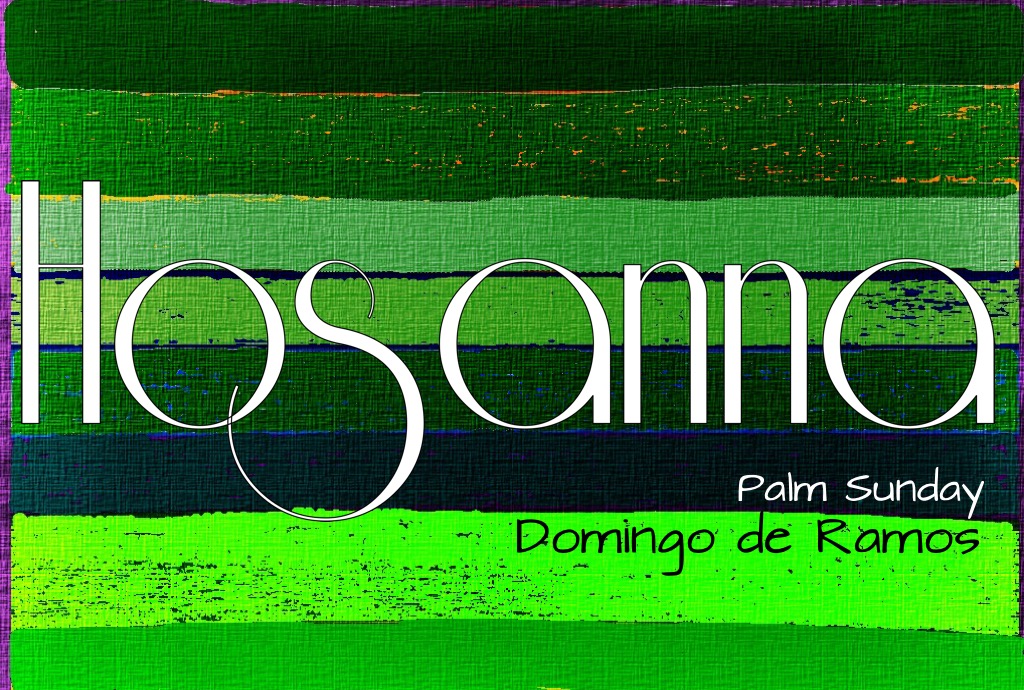Palm Sunday – Reflection on the Welcoming
share
For Lent this year, we have asked eight sisters and associates to reflect on the Beatitudes and offer ways in which we may embrace these blessings in our own Lenten journeys. There will be additional reflections published for Ash Wednesday, Palm Sunday, Holy Thursday and Easter.
By Sister Ana Siufi
“Many took palm branches and came out to meet him shouting: Hosanna, blessed is he who comes in the name of the Lord…!” (John 12:13)
Daily, we see many people break promises and forget the lessons or advice they give. There are plenty of examples of erratic or clearly contradictory behaviors and discourses in our own lives, communities or institutions.

In Jerusalem 2,000 years ago, the arrival of a teacher, healer and prophet who worked wonders and spoke with authority elicited a welcome full of enthusiasm, songs and honors, with palm branches and cloaks laid to make a path for the borrowed donkey on which he was riding. Surely Jesus still held the memory of this a few days later when he had to face the betrayal, conspiracy, denials, fear, flight and abandonment of the disciples, who shouted condemnation or were indifferently silent. He loved this complicated humanity to the end, and he teaches us how to love it ourselves.
Palm Sunday reveals to us a humanized God who fully accepts human contradictions. He embraces us as we are: passionate or asleep, liberated or full of prejudices, capable of shuddering and crying as well as anesthetizing and killing, admirers or despisers of beauty and holiness, fighters for justice or sold-out traitors, pouring out tenderness or enjoying torture, defending peace or waging wars.
Today I think it is against the tide to leave our comfort zone and welcome authenticity, vision, love, wisdom, forgiveness, loyalty and deep healing, because simulation, individual salvation, discursive manipulation, uncompromised silence and self-justification are easier and more convenient.
Furthermore, Jesus asks us to open doors and welcome in, in a thousand ways, the persecuted, the poor, the crazy, the addict, the Black, the Indian, the violated woman, the stigmatized or crucified instead of discarding them, abandoning them, sacrificing them, hounding them and silencing their screams. They are the “Home of the Sacred and the Human,” and they cannot be hidden under the carpet of a world that closes its doors to them.
Death sentences like Jesus’ are concealed by too many words or by silences. Many are killed by hunger, disease, mafias, deserts or seas, natural phenomena, terrorism, machismo, sexual orientation. But who actually or symbolically kills so many millions of people every day, deciding that those lives are unwelcome? How do we wash our hands in the face of so much death, for which we are complicit in a thousand ways? What cost do we pay to be welcome in this society that measures us by color, wallet size, titles, beauty?
Let the stones cease to cry out what we keep silent (Lk 19:40) and let the brotherhood that makes us compassionate be not just a utopia (not a place), but rather a sincere and concrete way of life, the goal of our personal, local, national and global actions, as the Fratelli Tutti encyclical reminds us.
This song, “Torch” by Humberto Pegoraro, reminds us of the Lenten journey, and the welcoming of community.
Torch to light my journey
Warmth of home in my winter times
Beginning and end has this journey
If your light guides me and your fire burns.
I walk with you and everything is wonderful
From the tiny details the Mystery speaks
And I no longer believe in coincidences
If your light guides me and your fire burns.
I look for that Wellspring that always sings
From the depths of me and there I find you
And I’m not afraid of the deep
If your light guides me and your fire burns.
The cruelty of injustice hurts me
I want to be free, I fight, I rebel
For You I am “the people” and I am not saved alone
If your light guides me and your fire burns.